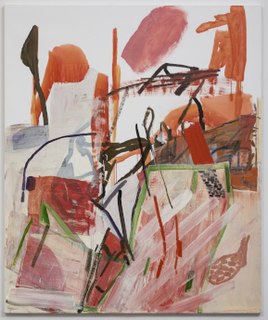A Quote by Joyce Carol Oates
To be true to life, a novel must have an ending that is inevitable given the specific personalities of the characters involved. The novelist must not impose an ending upon them.
Quote Topics
Related Quotes
I want to expand the question of when something is done. I want to vex the ending. I want to mess around with that. I like the idea that if you make a work that has no clear ending, then you must play with the ending. Because if you don't, you're not highlighting the weird, lovely openness of abstraction.
It has long been a tradition among novel writers that a book must end by everybody getting just what they wanted, or if the conventional happy ending was impossible, then it must be a tragedy in which one or both should die. In real life very few of us get what we want, our tragedies don't kill us, but we go on living them year after year, carrying them with us like a scar on an old wound.
What must novel dialogue . . . really be and do? It must be pointed, intentional, relevant. It must crystallize situation. It must express character. It must advance plot. During dialogue, the characters confront one another. The confrontation is in itself an occasion. Each one of these occasions, throughout the novel, is unique.



































